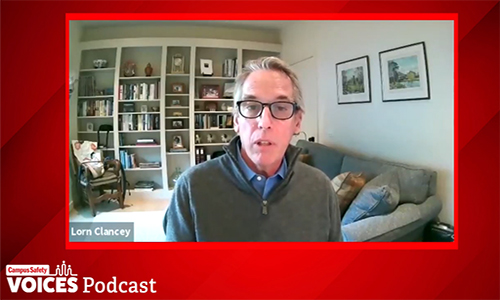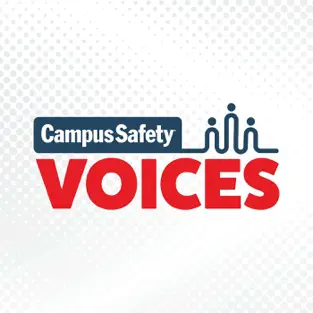You can watch or listen to the full podcast interview above. If you prefer to listen on-the-go, you can download the podcast to your mobile device on iTunes and Spotify! Make sure to follow or subscribe on your platform of choice to be alerted of the latest episodes as soon as they become available.
Since the COVID-19 vaccine became available, there have been many discussions surrounding the frigid temperatures at which the different vaccines need to be transported and stored, and the special equipment and technology needed to accommodate those crucial requirements.
Campus Safety had the opportunity to speak to Lorn Clancey, senior director of wireless environmental monitoring solutions for CenTrak, about the company’s involvement in the vaccine rollout. CenTrak is a leader in the real-time location service (RTLS) space. However, temperature and environmental monitoring is a little less known yet significant part of the business.
“What we’ve done, relative to the vaccine rollout, is really significant in that we provide acute care sites — really some of the largest hospital systems — [with] the ability to [safely store] the COVID vaccines,” Clancey told Campus Safety. “We all know that there are several different types of vaccines that are now coming to bear, all with different stability budgets and concerns, so we’re in a place where we can really address all of what’s coming down the pike.”
What some may not know is that while temperature monitoring plays a huge role in protecting the vaccine, it is by no means a new type of technology. CenTrak, says Clancey, has been monitoring ultra-low freezers for years. There are also accuracy standards in place by the National Institute of Standards and Technology (NIST) that all sensor and probe manufacturers have to comply with.
“It just happens that, in this case, that the contents are really visible and really important,” he continued. “But we do clinical trial drugs. We do patient samples in these ultra-low units, so it’s not a stretch for us to do this in any way. It’s really standard fare. It’s just that the notoriety of what’s being monitored is what’s a little different.”
However, that does not mean no changes have had to be made to accommodate the coronavirus vaccine. The Centers for Disease Control and Prevention (CDC) has very specific care and handling requirements that must be met for all vaccines, and additional requirements have been tacked on to meet the unique needs of the COVID vaccine. For example, specific thermal packaging is needed for transport and dry ice has to be replaced after a certain amount of time.
We also talked about how the cold chain integrity piece has been extremely difficult for hospitals to handle, how temperature monitoring technology helps preserve the integrity of the vaccines, how CenTrak technology can be used in other ways beyond protecting the COVID vaccine — including infant security and additional asset tracking — and Lorn’s predictions for temperature monitoring technology’s involvement in community vaccination sites as they continue to pop up across the country.
Click below to listen to the podcast on Spotify
Click below to listen to the podcast on Apple Podcasts









